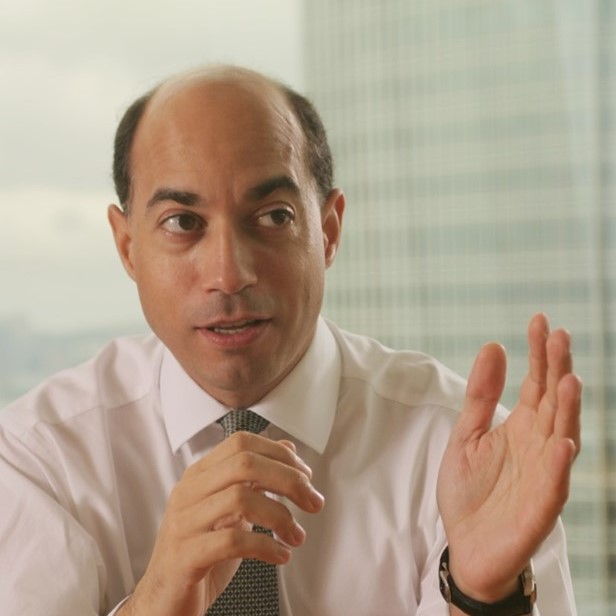Acting as an expert witness - what this involves

Blog post by Philippe Espinasse
Following a career in investment banking, I first got involved with expert work five years ago. The opportunity came through a law firm in Asia, asking me to act for a major investment bank faced with disciplinary proceedings brought by a securities regulator. The issues revolved around due diligence performed by that financial institution, in connection with the listing of a company on a stock exchange. More specifically, I was asked to opine on the adequacy of the due diligence then performed, under guidelines and regulations available at the relevant time.
A lot of my work involves opining as an expert on issues related to IPOs. This is likely because they are typically long, complicated transactions requiring significant investigations by all the working parties. They involve the coordination by the lead banks of different sets of law firms, accountants, as well as industry experts, depending on the sector in which the issuer operates. Often these transactions involve large amounts of money, however, one of the most complex and lengthy cases I have worked on as an expert witness (for which I had to write two expert reports, a joint expert report, and was also cross-examined in the High Court in Hong Kong) was related to a much smaller equity offering.
Legacy (that is, pre-IPO) shareholders can have differing objectives, which on occasion leads to disputes when these are not ultimately met through listing. New shareholders – and especially institutional investors – may also sue the issuer and/or its advisers if the performance of the listed shares is below par, or if issues related to the company’s governance or due diligence are uncovered. This may in turn trigger regulatory inquiries and lead to related action in securities tribunals. The process for IPOs is essentially similar across jurisdictions. As such, I have worked as an expert witness for cases in, for example, the Cayman Islands, Hong Kong, Singapore, India, and the UK, and been instructed by diverse parties, such as investment banks, companies, investors, or securities regulators.
Proceedings will typically be brought in the High Court, before arbitral tribunals, or in specialized securities tribunals. Typically, each party to the action appoints at least one investment banking expert witness, although there may also of course be other types of experts – for example in relation to property valuation, if the case involves such issues. I have also worked on cases where two banking expert witnesses were appointed by each side, which made for interesting discussions to write a joint expert report! My expert work has also involved financial transactions other than IPOs, such as placements, block trades, rights issues, and bond issues.
Typically, I am instructed through the introduction of firms of solicitors (more rarely by barristers). Other clients find me through my books, website, teaching assignments, LinkedIn, or the registers of expert witness institutes to which I belong as a member. In the main, my instructions involve anywhere between one and six issues to be addressed in an expert report, which may next be supplemented by a subsequent report, reply report, or joint expert report. Most cases however are settled before they reach the hearing stage, so my report(s) often serve in the related negotiations between the parties to a suit. Of course, some cases still go all the way to Court, and I will then be cross-examined by the barrister(s) acting for the opposite party.
During the recent pandemic, I was once cross-examined online through Zoom. This involved a computer screen for the tribunal, another one for the cross-examining barrister, and a third one showing a LiveNote, real-time transcript. All the parties were located across different locations, including continental Europe, Hong Kong, India, and Singapore. I thought that the proceedings went somewhat faster, as compared to the usual Court proceedings, which I personally prefer. As an expert witness, I must typically read and process hundreds of pages of documents (or even more), in addition to the pleadings and other Court documents, all often within the space of only weeks or, at most, months.
I believe that studying for an LLB at the OU makes me a better expert witness. I now have a better appreciation of the work done by solicitors, barristers, and judges, and a better understanding of the principles of law underlying such work (especially in relation to contractual disputes, which are typically the types of suits I am involved in, even if what I am asked to opine on is not of a legal nature).
I have seen expert witnesses having a very difficult time in Court during cross examination, so training and preparation are essential with this type of work, especially since expert witnesses can now also be sued for negligence since the decision by the Supreme Court in Jones v Kaney [2011] UKSC 13, [2011] 2 AC 398.

Philippe Espinasse
Philippe was as a capital markets investment banker in the US, UK, continental Europe, and Asia for the best part of 20 years. He has also served as an independent board member of a listed bank (in Taiwan), as a consultant, as a financial columnist for the likes of the South China Morning Post and Dow Jones/The Wall Street Journal – and has authored or co-authored six published business books (in addition to two thrillers).
He now works mainly as an expert witness, in connection with IPOs and other types of capital markets transactions.
Philippe has taught IPOs in the faculty of law of the University of Hong Kong (department of professional legal education) since 2012 and is currently studying for an LLB (stage 2) at the OU.